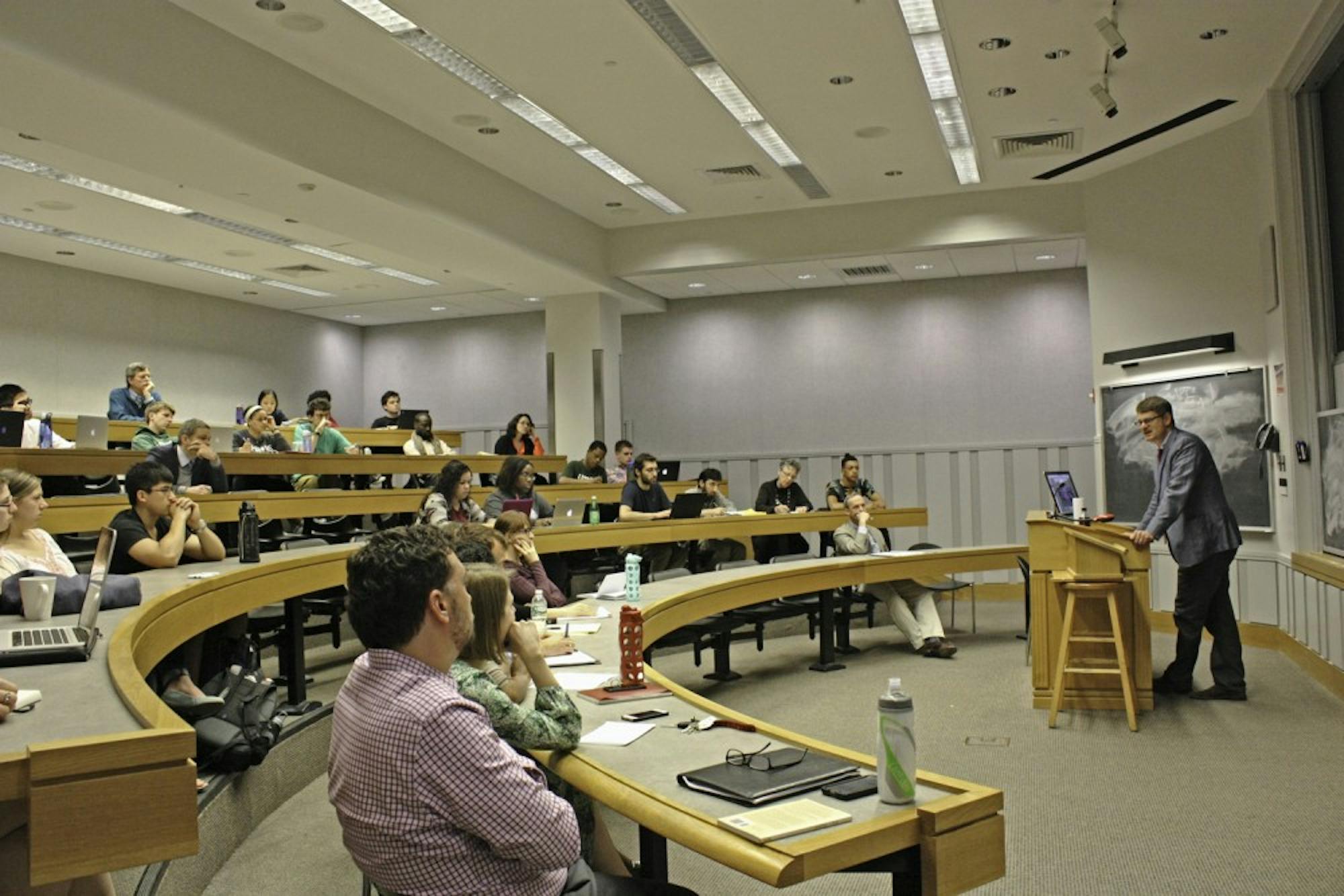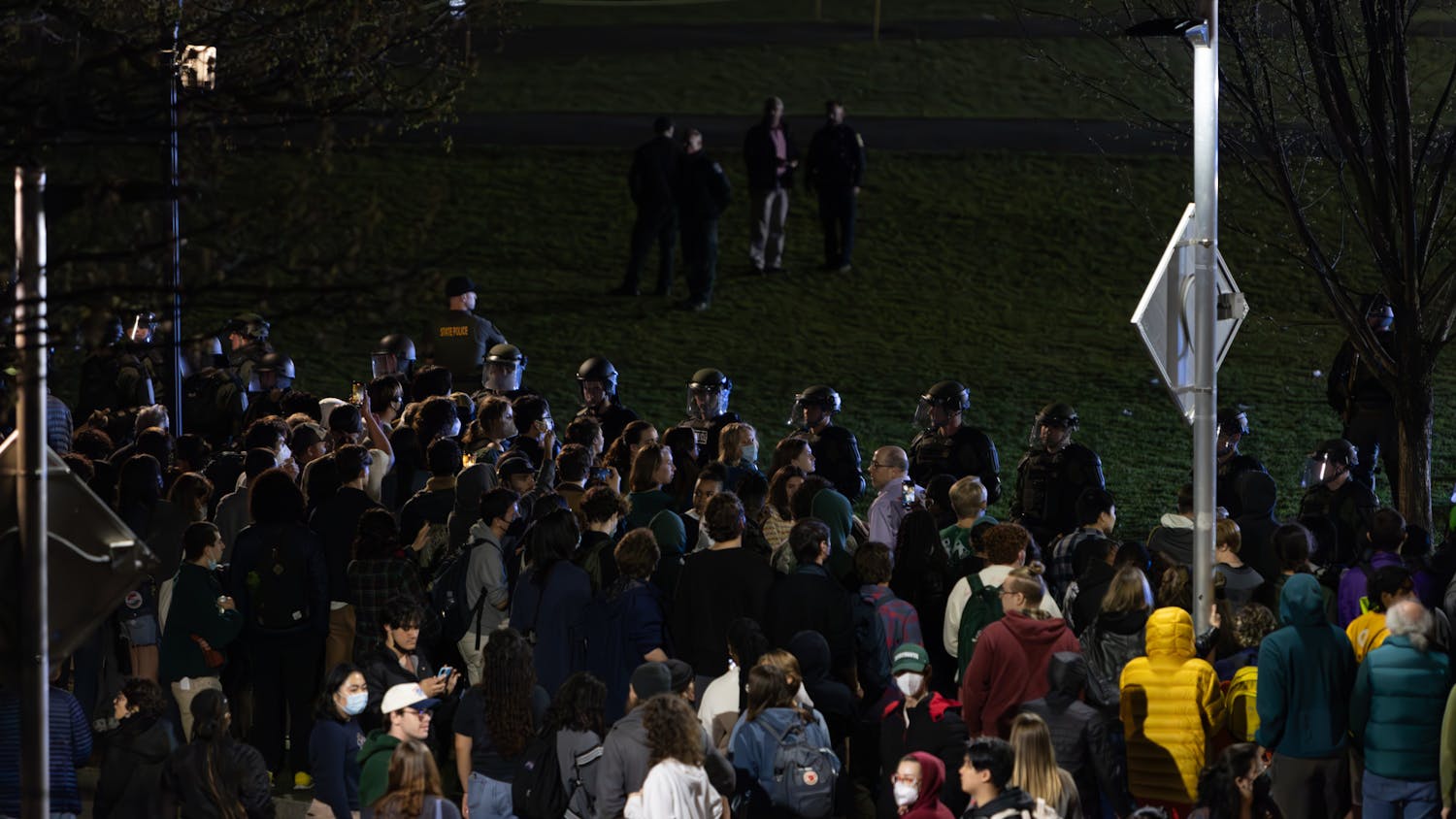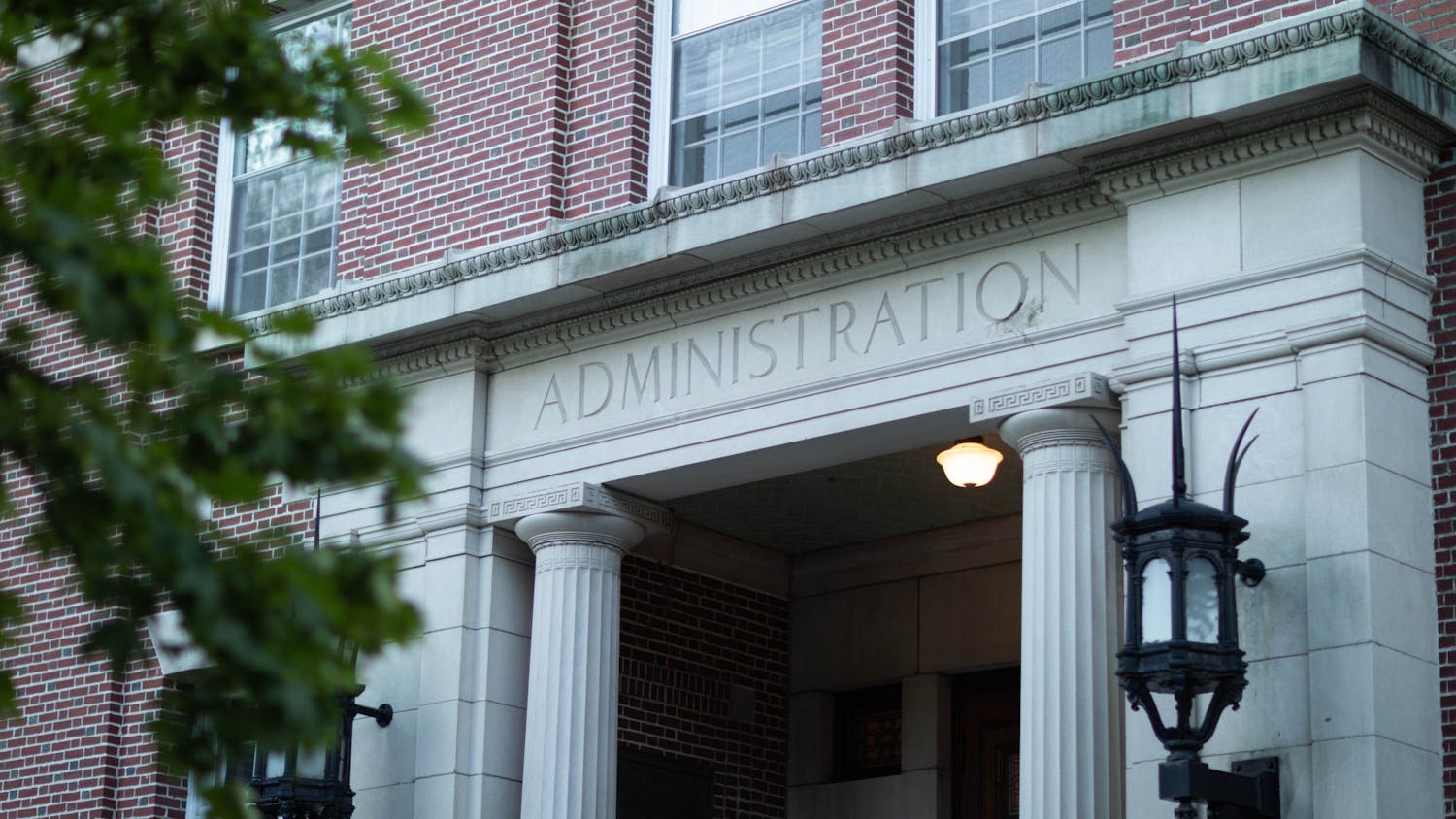Harvard history professor Walter Johnson gave a lecture yesterday about American slavery and what Johnson believed were common misconceptions about the labeling of slaves and slave owners in the pre-Civil War American South. The talk, titled “What Is Wrong With Saying Slavery ‘Dehumanized’ Black People” saw nearly 50 attendees.
Johnson began the event by reading parts of his book, “River of Dark Dreams: Slavery and Empire in the Cotton Kingdom,” which, according to its description, examines and critiques the “logic” of American slavery in a variety of venues, such as cotton plantations, steamboats and in pro-slavery adventures.
He then discussed the legacy of slavery and dehumanization within the context of the recent national “Black Lives Matter” movement.
Johnson presented two visual images to the audience. The first was a black wall, which was covered in white writing with phrases such as “Black queers’ lives matter,” “Black immigrants’ lives matter,” “Black transvestites’ lives matter” and a variety of other phrases regarding different groups of black people.
Each of the phrases had the word “black” crossed out with red and the word “All” written over it.
He then displayed the website for The GEO group, the self-described “world’s leading provider of correctional detention, and community reentry services,” in order to share his thoughts on racial issues within the prison system.
When he turned to the page describing the group’s diversity, the entire room burst into laughter at an apparent irony.
Johnson talked about the issues with “for-profit” policing, an issue he said was present in Ferguson, Missouri, as seen with the tens of thousands of citations for municipal violations and subsequent violations that he said were issued to raise over two million dollars for further government expenditures. Johnson also noted that a majority of those government employees were white and in the police department.
Johnson said that “Black Lives Matter” movement was dangerous in that it raised a question that he said really should not be a question, in the sense that people should not have to question whether black lives matter in the first place.
The discussion ended with an open question-and-answer period, which lasted approximately 45 minutes.
Audience questions ranged from asking about genocide in relation to dehumanization to questions about different interpretations of the “Black Lives Matter” movement.
When discussing the idea of dehumanization, Johnson brought up questions such as “who gets to decide when someone loses their humanity.”
Jessica Winters ’18 said that she originally attended the event due to a requirement for her course, “Race and Slavery in U.S. History,” in addition to personal interest in the subject matter.
Winters said that Johnson’s relating of the concept of dehumanization to the “Black Lives Matter” movement was the part that she liked the most.
Women and gender studies professor Giavanna Munafo wrote in an emailed statement that the discussion was planned independently of the “Black Lives Matter” course that is being offered for the first time this term.
She wrote that she enjoyed seeing students engaged in discourse and action in regards to the subject matter, as she said it is a sign of consciousness and engagement among the student body.
“I’m always heartened to see students organize to protest injustice,” she wrote.
Munafo also noted that these kinds of discussions or protests in general are valuable as they serve to inform the public.
“[The lecture] demonstrates awareness and resistance to the costs of maintaining the status quo, especially for people of color but also for every member of every community where some lives matter more than others,” she wrote.
This lecture and discussion follows a series of on campus protests revolving around the “Black Lives Matter” movement, including a march across campus and protests at two on campus parties.




